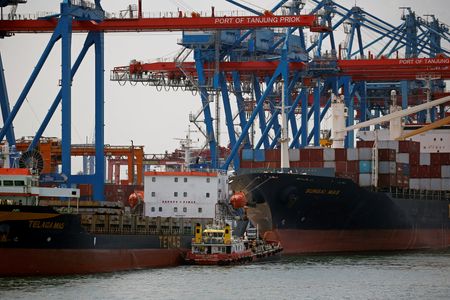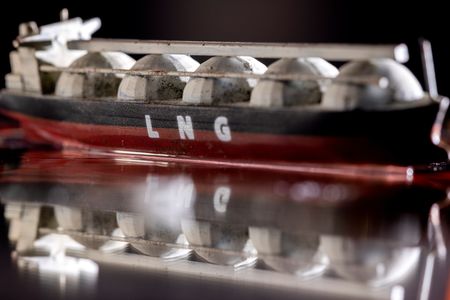By Gayatri Suroyo and Fransiska Nangoy
JAKARTA (Reuters) – Indonesia’s trade surplus narrowed more than expected in December to $1.02 billion, the lowest in 20 months, as a surge in exports driven by commodities slowed and imports hit a record high, official data showed on Monday.
Southeast Asia’s largest economy has been reporting a trade surplus every month since May, 2020, as the coronavirus pandemic supressed local demand while exports rode a boom in prices of commodities like coal, palm oil, copper, tin, steel and rubber.
The December surplus was about a third of the $3.13 billion forecast by economists polled by Reuters and was also much smaller than the $3.51 billion recorded in November.
December imports hit a record high of $21.36 billion, up 47.93% on a yearly basis and beating the poll’s forecast for 39.40% growth, as overseas purchases of everything from consumer goods to raw materials for the manufacturing industry jumped.
“This shows that economic activity is improving … including consumption,” Margo Yuwono, the head of Statistics Indonesia, told a news conference.
Meanwhile, export growth was 35.30% on a yearly basis compared with the poll’s expectation of 40.40% growth, with shipments of coal to China slowing as Beijing ramped up domestic output of the fuel.
The resource-rich country’s total shipments in December were worth $22.38 billion, the second highest on record for monthly data after November’s $22.84 billion.
Economists have warned that a ban on coal exports, implemented since Jan.
1 to avoid widespread domestic power outages, could shift Indonesia’s trade balance to a deficit. Coal exports make up about 14% of Indonesia’s overall exports.
The ban has been eased for big miners that have met domestic sales requirements, but is still affecting smaller miners whose output accounts for up to 40% of Indonesia’s total.
For the whole of 2021, Indonesia’s exports reached a record high of $231.54 billion, while imports totalled $196.2 billion.
The 2021 trade surplus of $35.34 billion was the biggest since 2007.
(Reporting by Gayatri Suroyo and Fransiska Nangoy; Editing by Martin Petty and Ed Davies)









